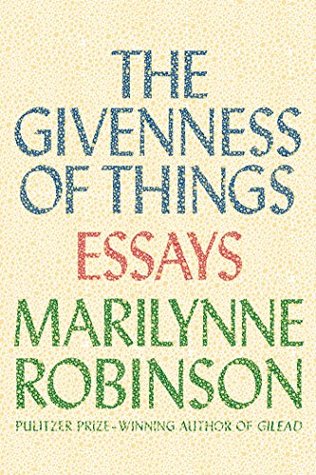More on this book
Community
Kindle Notes & Highlights
Read between
April 28, 2023 - September 26, 2024
Now we are less interested in equipping and refining thought, more interested in creating and mastering technologies that will yield measurable enhancements of material well-being—for those who create and master them, at least.
the spirit of the times is one of joyless urgency, many of us preparing ourselves and our children to be means to inscrutable ends that are utterly not our own.
beyond them and beyond our present powers of inference. But for these scientists it is a business of nuts and bolts, a mechanics of signals and receptors of which no more need be known. Their assertions are immune to objection and proof against information. One they dismiss and the other they ignore.
The real assertion being made in all this (neuroscience is remarkable among sciences for its tendency to bypass hypothesis and even theory and to go directly to assertion) is that there is no soul.
I find the soul a valuable concept, a statement of the dignity of a human life and of the unutterable gravity of human action and experience.
I am not prepared to concede objectivity to the arbitrarily reductionist model of reality that has so long claimed, and been granted, this virtue.
The physicality enshrined by the neuroscientists as the measure of all things is not objectivity but instead a pure artifact of the scale at which and the means by which we and our devices perceive. So to invoke it as the test and standard of reality is quintessentially anthropocentric.
Its tendency is to insist on the necessity of a transformation of our conception of human nature—to make it consistent with a view of reality that it considers clear-eyed and tough-minded, therefore rational and true.
If the object of neuroscience or neo-Darwinism were to describe an essential human nature, these disciplines would surely seek confirmation in history and culture.
We know things in the ways we encounter them. Our encounters, and our methods and assumptions, are determined by our senses, our techniques, our intuitions.
Science of the kind I criticize tends to assert that everything is explicable, that whatever has not been explained will be explained—and, furthermore, by their methods. They have seen to the heart of it all. So mystery is banished—mystery being no more than whatever their methods cannot capture yet.
and burned. The poet and priest William Langland, contemporary with these events, wrote in Middle English the long visionary poem Piers the Ploughman, composed between 1362 and 1394. One voice of the poem, describing theologians at dinner, says, “Meanwhile some poor wretch may cry at their gate, tormented by hunger and thirst and shivering with cold; yet no one asks him in or eases his suffering, except to shoo him off like a dog. Little can they love the Lord who gives them so much comfort, if this is how they share it with the poor! Why, if the poor had no more mercy than the rich, all the
...more


